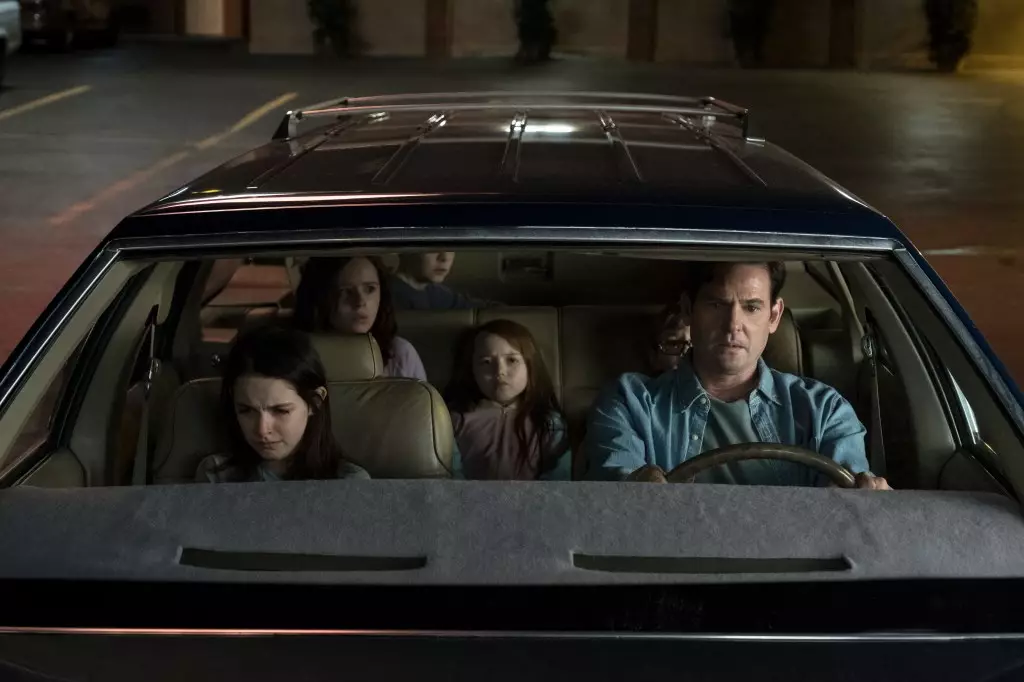Mike Flanagan, a maestro of modern horror, has taken the genre beyond mere fright, transforming personal trauma into art that resonates with audiences on a profound level. His recent revelations at SXSW London, especially during the premiere of his highly anticipated film, *The Life of Chuck*, shed light on how his storytelling intricately weaves through his own experiences of loss and grief. Flanagan candidly shared that the creativity behind his iconic Netflix series, *The Haunting of Hill House*, emerged as an essential coping mechanism following a suicide within his family. This stark intermingling of personal narrative and horror illustrates how he isn’t just crafting entertainment but rather engaging in a deeply therapeutic process that many viewers can identify with.
This cathartic response to grief has not only been an outlet for him but also a source of communal solace for fans grappling with similar distress. As Flanagan poignantly stated, the imagery and themes portrayed in *Hill House* — particularly through the character of Nell Crain — resonate with his own emotional battles. This authentic vulnerability is what sets Flanagan apart in the horror landscape; he embraces the painful complexities of life, crafting narratives that seek not only to terrify but also to heal.
The Underrated Depth of Horror
In a world that often underestimates horror, Flanagan bravely defends the genre, highlighting a persistent bias that simplifies horror to mere jump scares. At the SXSW session, Flanagan pointed out that despite occasional recognition through critically acclaimed works—like Jordan Peele’s films—there remains a constant struggle against preconceived notions that misrepresent horror as lesser art. His defense is not only aimed at critics but reflects a broader cultural misunderstanding of horror’s capabilities.
Flanagan’s point is particularly compelling when you consider the vast depth present within horror storytelling. It challenges societal norms, explores existential dread, and unearths the intricacies of human emotions. Through his adaptations, many of which are inspired by Stephen King’s nuanced writing, Flanagan demonstrates that horror is fundamentally rooted in the human experience. Every ghost story holds a mirror to our fears, losses, and triumphs, revealing the beauty within the darkness.
Collaborating with Stephen King: A Unique Perspective
Flanagan’s investment in King’s work, particularly his appreciation for King’s humanism, shifts the focus away from the conventional labels of “horror writer.” He perceives King as a “gooey-hearted, lovely humanist” whose narratives underscore friendship, empathy, and the struggles inherent to human nature. This admiration reveals Flanagan’s intention to foster a connection with audiences that transcends traditional horror tropes; he seeks to illuminate the emotional core of the stories.
Describing King’s work, Flanagan emphasized that the horror is not the focal point but rather a natural byproduct of exploring the human condition. This insight brings a refreshing approach that encourages both filmmakers and audiences to look beyond surface-level scares and appreciate the intricate tapestry woven into horror narratives.
The Art of Monologue in Modern Filmmaking
During the discussion, Flanagan lamented the diminishing presence of monologues in contemporary filmmaking. He perceives monologues as a powerful storytelling device that has the capacity to transform a viewer’s understanding and experience of a film instantaneously. His call for their preservation speaks to his belief in the strength of dialogue—the capacity of words to convey emotion and nuance profoundly.
Flanagan’s insistence on preserving the monologue amidst the demands of studios and streaming platforms highlights a tension in modern cinema. Viewers today often respond to faster pacing and snappy dialogue, entrapping storytelling within the confines of brevity. Yet Flanagan argues that sacrificing depth for expediency dilutes the emotional weight that can come from a well-crafted soliloquy. His passion reflects a dedication to preserving narrative richness, pushing back against the idea that brevity inherently elevates a story.
Mike Flanagan stands as a beacon of hope for horror enthusiasts and storytellers alike, proving that grief can breed creativity, empathy can transcend fear, and that every shadowy corner of the human experience holds the potential for profound connection.
